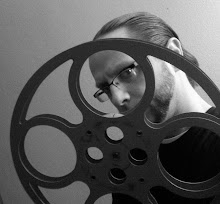
It has been argued for decades that there are only two types of people who make movies: There are Directors (Singer, Cameron, Bay) and there are Filmmakers (Scorsese, Aronofsky, Malick). With the arrival of the stunning achievement that is MELANCHOLIA, Lars Von Trier may have created a new category all for his own; a film Composer. His MELANCHOLIA is like a beautifully composed piece of music, with soaring ups and downs on the way through an emotional journey.
Disguised as a movie about the end of the world, Justine (Kirsten Dunst) and Michael (Alexander Skarsgard) are celebrating their wedding at the swanky home of her sister Claire (Charlotte Gainsbourg) and brother-in-law John (Kiefer Sutherland). The wedding is a disaster, with family tensions and drama and Justine’s failure to be happy wrecking everything. Meanwhile, a wayward planet named Melancholia is on a path which may, or may not bring it to collision with Earth.
MELANCHOLIA is a film about the end of the world, but that is just the cover. It is really a film about depression and how the characters react to the pending disaster, which again may or may not happen. It is clear that both Justine and Claire suffer from depression, but in different ways; Justine is internally depressed and welcomes the possible disaster as a reprieve from this thing called life. Claire is externally depressed; fearing the absolute worst from that pesky planet. Adding more drama to the mix is John, who is impatient with Justine’s behavior, and as a scientist is excited and fascinated with Earth’s new neighbor. Von Trier does excellent work in throwing the characters into the mix and letting them react to the situation. There are character traits in Justine, Claire and John that everyone can relate to.
Von Trier composes a beautiful film here, with outstanding photography and tightly woven storylines; there is nothing redundant or unnecessary, as every long take and montage is important to the overall theme. The shaky-cam is used a lot, not to make confusing action but to create an unsettling feeling, and it works. Von Trier is not afraid to let the film unfold slowly with trudging pacing; and knows exactly when to wake the audience up using a few shocking visuals. One interesting choice Von Trier made is with the score; while it is magnificent and fitting, there seems to be only one short piece written for the entire film, and it is used about a million times. It’s a guarantee that the theme will be stuck in the audience’s head for days…
Kirsten Dunst won a Best Actress award at the 2011 Cannes Film Festival for her performance in this film, and it is well deserved. She sinks into herself so well there is never a doubt that her character is a deeply depressed person. Her maturity is evident here, and it is a role that will make many forget about the goofy films she’s made in her past. Her performance seems to rub off on everyone (except for Sutherland, who seems to be phoning it in), most especially Charlotte Gainsbourg who must counter her. Smaller roles by Stellan Skarsgard and the great John Hurt are also a joy to watch.
For a film that is dealing with the end of the world, MELANCHOLIA never shows the effect the possible disaster has in a world-wide scale; in fact, it never leaves the confines of Claire and John’s home. The possible Armageddon is not the focus as much as which of the two sisters has a firmer grip on reality. That approach brings the focus to the characters and the human side of tragedy, and brings MELANCHOLIA to the status of masterpiece.
BOTTOM LINE: See it

No comments:
Post a Comment
A few rules:
1. Personal attacks not tolerated.
2. Haters welcome, if you can justify it.
3. Swearing is goddamn OK.